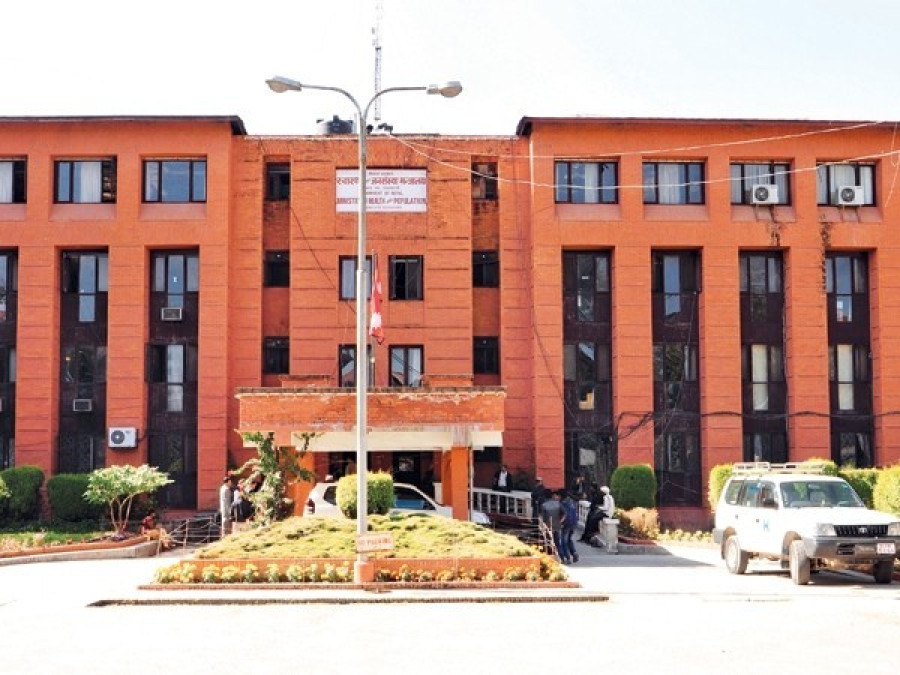National
Health Ministry suspends staff adjustment process for now
The Ministry of Health and Population has suspended the staff adjustment process for the time being and has directed health workers serving throughout the country to continue with their services until they get the employee adjustment paper.
Arjun Poudel
The Ministry of Health and Population has suspended the staff adjustment process for the time being and has directed health workers serving throughout the country to continue with their services until they get the employee adjustment paper.
The direction of the ministry comes after it realised that health care services throughout the country will be disrupted if the existing employee adjustment list, published by the ministry some three weeks ago, is implemented.
“We have come across serious weaknesses in the employee adjustment process. We need to figure out certain things and that’s why we have decided to suspend it for now,” Mahendra Prasad Shrestha, spokesperson for the Health Ministry told the Post.
According to Shrestha, if the existing employee adjustment list is implemented then only seven doctors would remain in Karnali province and eight in Sudurpaschim Province. Services of several health facilities—regional hospitals, district hospitals, primary health care centers, health posts, and birthing centres—will come to a halt due to insufficient trained manpower.
Under the existing employee adjustment list, junior anaesthetic doctors, whose service has been instrumental in continuing surgery services at regional and district hospitals, would be transferred to primary health care centres, severely affecting the regional and district hospitals. A few consultant doctors serving in the remotest districts of the country will also be transferred to regional and central level hospitals. Likewise, services at several birthing centres at primary health care centres and health posts will be stopped, as trained nurses and auxiliary midwives will be transferred somewhere else.
Dal Rawal, minister for social development of Karnali Province, said that he had asked concerned officials at the Health Ministry to contemplate over the possible consequences of implementing the existing employee adjustment list. “Under the existing employee adjustment list, people of Karnali Province will be deprived of basic health care services,” said Rawal.
Brish Bahadur Shahi, a public health administrator at the health service division of Social Development Ministry, said that the entire province already lacks doctors and health workers. “If the Health Ministry implements the list, only two doctors will remain in the regional hospital in Karnali Province,” said Shahi.
According to Shahi, the province only has 59 doctors out of the total 118 required.
Meanwhile, Dr Dipendra Pandey, chairman of the Government Doctors Association of Nepal, said that his association had also warned the concerned officials at the Health Ministry of dire consequences of the employee adjustment bill some four months ago.
“They did not pay heed to our suggestions and compelled us to resort to protests,” said Pandey, “Now they’ve realised the shortcomings of the employee adjustment bill.”
Shrestha agreed that the steps taken for civil servants cannot be successfully adopted for health workers. “Civil servants are to be deployed to the provinces and local levels from Singhadurbar but 81 percent health workers are already working in the local levels,” said Shrestha. He informed that 11 percent health workers have been serving under provinces and nine percent under the federal government.
According to Shrestha, from total adjustment, 38 percent staff of the Health Ministry alone will be deployed in the local levels. “We will form a new team of experts to conduct further research and to establish the consequences of such a step,” he added.




 9.83°C Kathmandu
9.83°C Kathmandu














